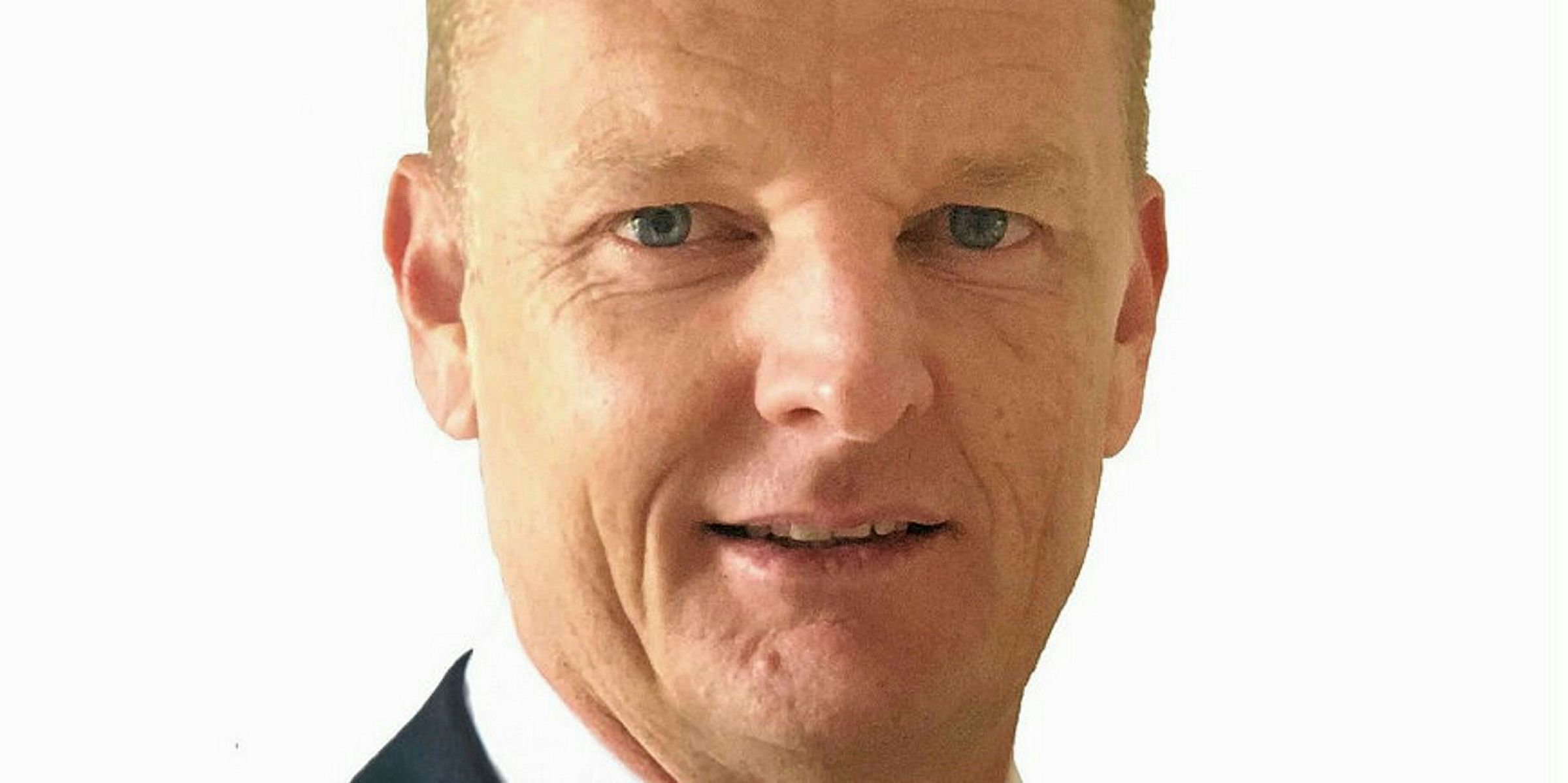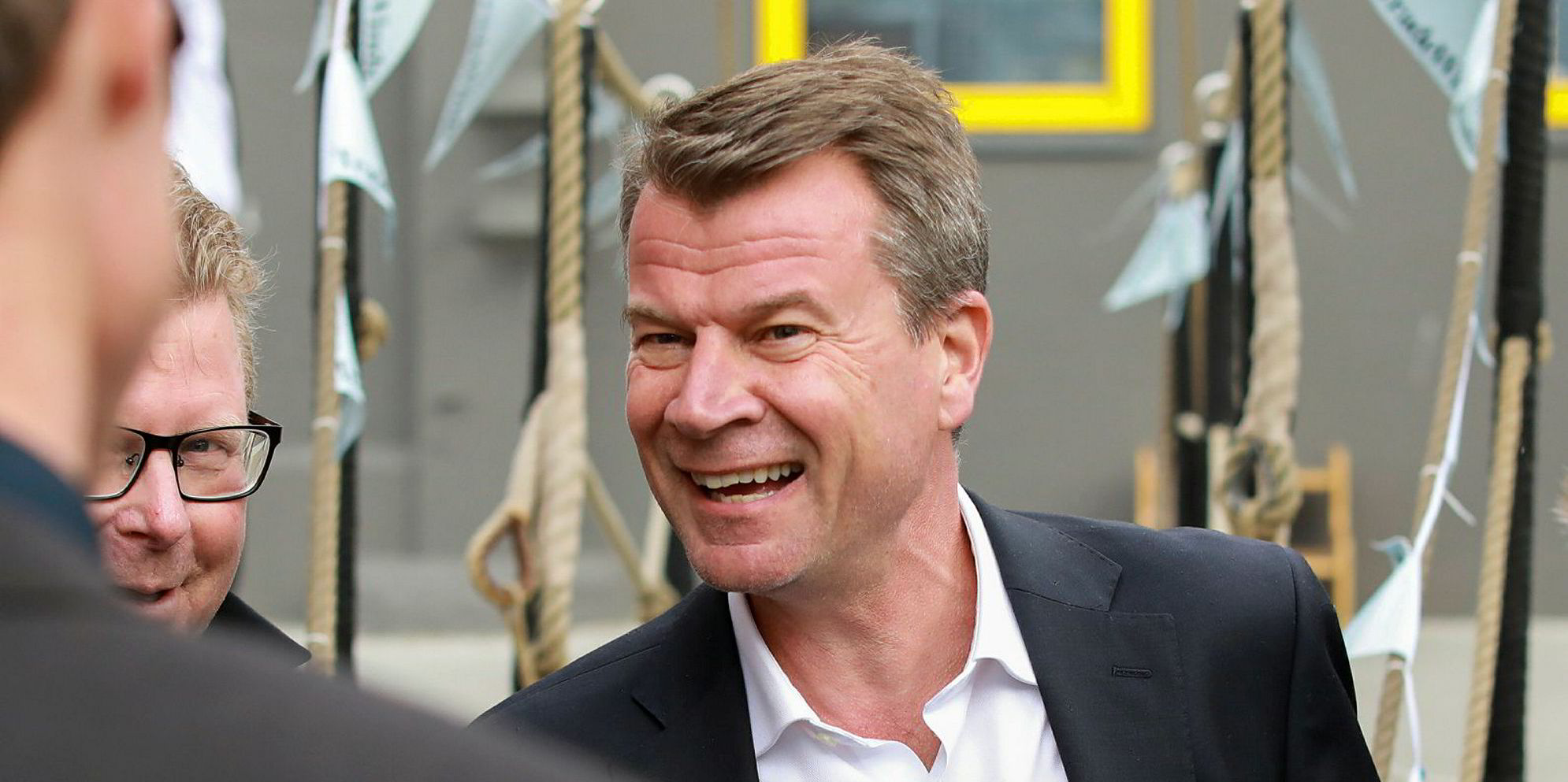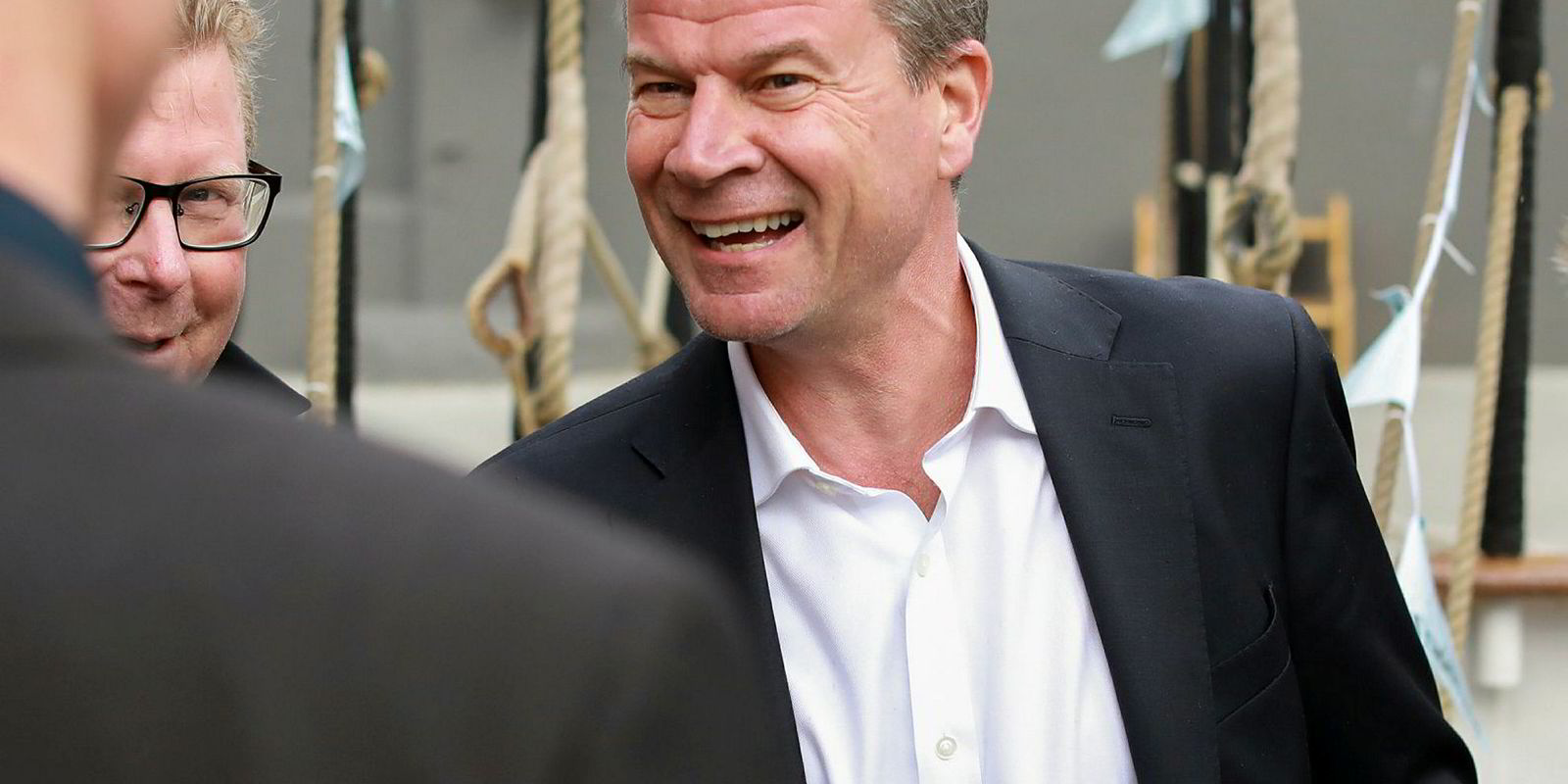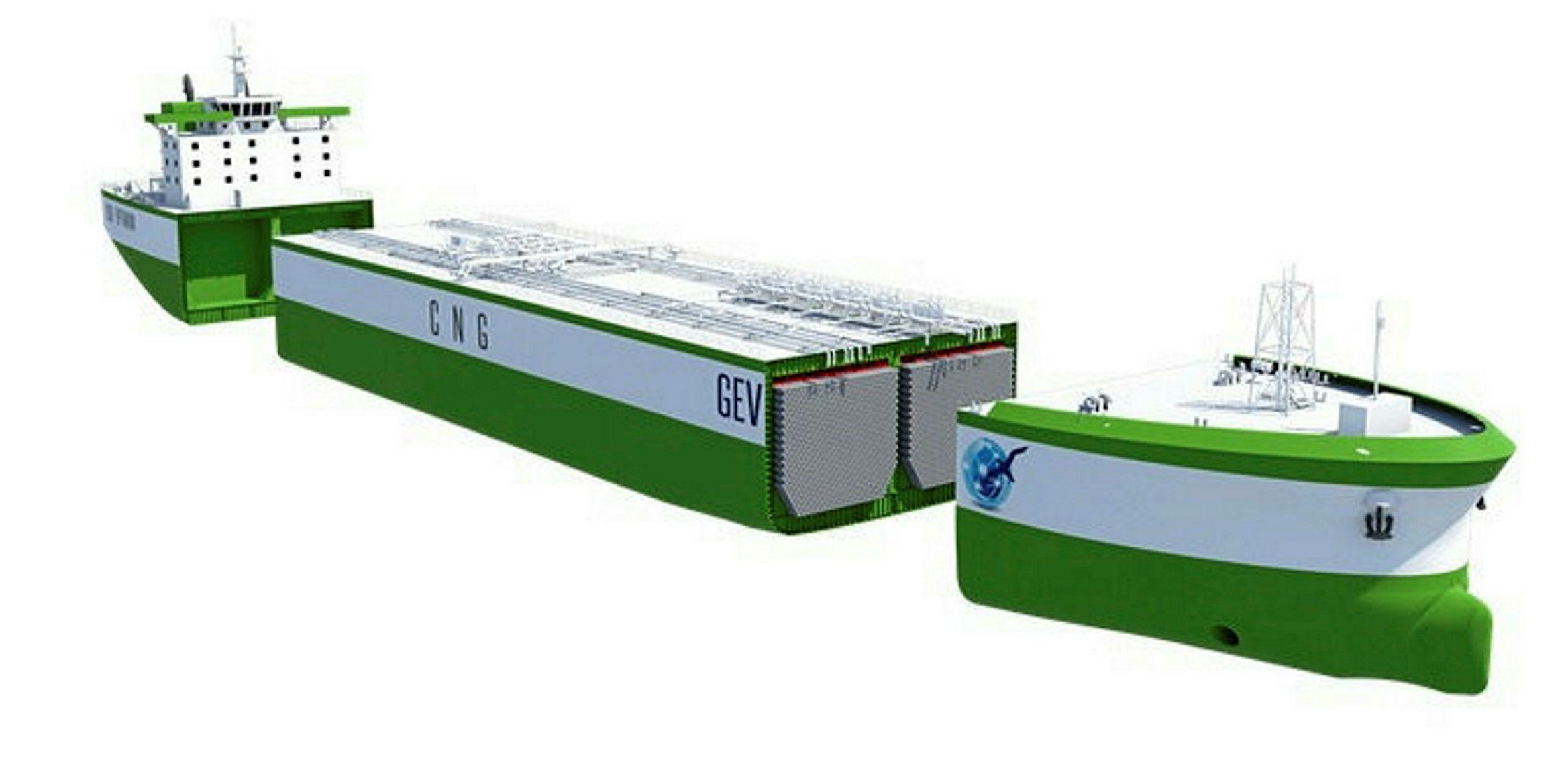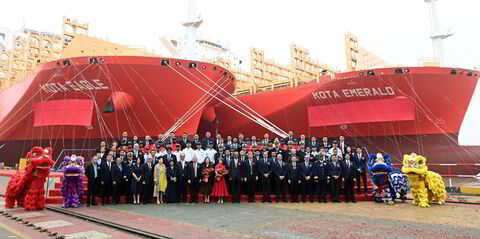Australia's Global Energy Ventures (GEV) has outlined plans to grow its fleet even further, a day after inking a potential $1.16bn deal for eight new compressed natural gas (CNG) carriers.
The company's executive director of corporate and finance, Martin Carolan, told TradeWinds it already has a project pipeline that could call for between 10 and 12 ships.
The innovative vessels are being lined up at CIMC Raffles in China at an expected price of between $135m and $145m each.
Carolan said the company has a "global view on where marine CNG is applicable."
It has a preliminary agreement with IOC over 20 years to ship gas from the Middle East to India, he added.
This involves volumes of 220m standard cubic feet per day (MMscf/d).
Other markets in the region include Pakistan, as well as ones further afield but in close proximity to the gas source, like Papua New Guinea to the east coast of Australia, plus Brazil.
In Europe it has a 20-year deal with Uniper for up to 400MMscf/d into the UK.
Carolan said there are numerous stranded gas assets, both offshore and onshore, in South East Asia.
"SE Asia also has several gas markets that are short of gas, without LNG import infrastructure available (mostly due to demand limitation for LNG)," he added.
Financing talks ongoing
The company is in the early stages of talks over financing for the carriers.
"The financing of a four-ship project, for example, would be on the basis we have investment grade take-or-pay 15 to 20-year off-take," Carolan said.
"We are talking to financial advisors out of Oslo and have been approached by Chinese syndicated banking firms for the ships."
The company has been discussing funding with the Pareto Securities team in Oslo, who GEV non-executive director Jens Martin Jensen, the former Frontline boss, knows well.
"They have set out an approach for the financial structuring and given their expertise. They are comfortable in funding provided we have the bankable off-take parties in place," Carolan said.
The first four units in the series are firm, with four options.
Carolan said the options are based on securing more than one four-ship project: "For example, a second four-ship project or indeed, a smaller two-ship project. Timing is still to be determined."
He added: "We have a pipeline of projects that would require more than the eight ships, with the details to be provided as each project reaches a feasibility stage."
"In 10 years we could have up to three projects in operation covering transport from pipe-to-pipe; associated gas from an offshore field; and our own stranded gas development project.
"Together all three projects combined would have a fleet of at least 10 to 12 ships with a pipeline of projects to follow."
New design
Shipbroker Clarksons Platou is working with the company, together with SeaQuest Marine Project Management, on the project.
Its stated aims are to pursue multiple CNG projects to improve the probability of success, secure access to strategic gas resources and bring in world-class staff.
CNG is gas stored under pressure and, unlike LNG, does not require complex and expensive liquefaction facilities, GEV said.
The Optimum design maximises the amount of CNG that can be stored within the hull of a ship, using a containment system built using close-packed, high strength pipes that run the entire length of the ship’s cargo hold.
"The invention of a mechanism to clamp these gas storage pipes so tightly together that they become locked together as one allows this design to meet all classification requirements," it said.
